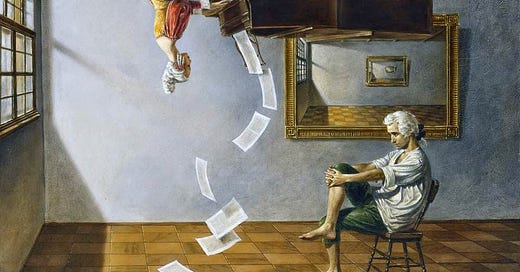My father spent his working life as a civil servant in the Pakistani embassy in London. Sometimes he wrote sports journalism for Indian and Pakistani newspapers. Primarily he wanted to be a novelist, and believed this was a skill you might learn from books. He became an enthusiastic reader of writing manuals, though there were far fewer of those around then than there are now. But they did include classics like Dorothea Brande’s Becoming a Writer and Ray Bradbury’s Zen and the Art of Writing. Because Dad liked to talk about these books and what he would call “the whole technique of writing” I would read them as well, trying to pick up tips. Since then I’ve continued to read and collect many of these writing manuals and have several shelves of them at home. They are a good way to avoid getting down to actual writing. Several of my favourites are the many volumes of the Paris Review interviews, which are among the most honest and realistic pictures of what it really is to suffer the agonies and pleasures of being a working writer.
These books were published long before the word “creative” was regularly added to the word “writing”. I’d like to find out when in fact this became common as it is a fatuous redundancy, and I could clout the culprit over the head.
Keep reading with a 7-day free trial
Subscribe to THE KUREISHI CHRONICLES to keep reading this post and get 7 days of free access to the full post archives.




